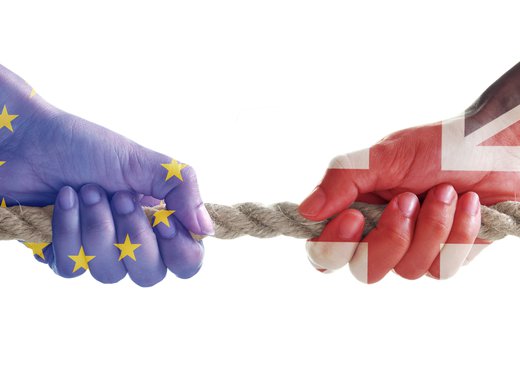As Canada braces itself for a new America-first presidency and Congress, friends and neighbours of the United States should prepare to face a dour mood in Washington, DC. A brusque upending of many current economic, security and other relationships is coming. It will be neither pleasant nor easy.
Yet, the ruthless policies soon to emerge from the United States could serve as a critical wake-up call for Canada, reminiscent of the Smoot-Hawley tariffs of 1930, which once threatened our core economic model.
This country’s decades-long economic success has not yet imploded. But there is no time to waste: the moment for transformation is now, with a fire about to be lit beneath us. Our global allies and competitors are already advancing strategies to carve out prosperous and sustainable futures. We must do the same.
Nations are poised to compete fiercely for fleeting advantages in an increasingly unstable world. Even before Trump’s return, concerns were mounting about rising instability stemming from inconsistent regulations governing long-established areas, such as international trade and investment. The erosion of global norms has only been exacerbated by ineffective environmental protections and a glaring absence of basic standards, in areas such as artificial intelligence (AI). Unfortunately, these conditions are likely to worsen.
Canada must therefore embark on a truly Canada-first approach. That means adopting assertive strategies to strengthen our economy and security, representing a departure from Canadian historical norms. Without such a bold framework, the country risks being sidelined on the international stage. The risks are internal as well as external: as our national value proposition diminishes, domestic divisions could be stoked and intensified.
It’s a complex challenge. Although Canada and the United States share profound common interests and cultural ties, we currently have limited leverage on pressing matters to our advantage. Trade negotiations to renew the Canada-United States-Mexico Agreement will begin in 2026. The pressure to contribute more to the North Atlantic Treaty Organization and Arctic defence is certain to resurface. Canada must avoid being strategically unprepared for these anticipated developments.
At the very least, this country must demonstrate leadership in advanced technology development and deployment, integrated supply chains for natural resources, shared security commitments. We must quickly position ourselves where the puck is going.
But if we’re to move forward strategically, we must first understand our past. While there have been noteworthy successes, Canada has historically remained economically subordinate to the United States, primarily serving as a supplier of raw materials, with minimal value-added production. Our historically dominant trade relationships, first with Britain and later with the United States, have entrenched this dependency.
Indeed, Canada’s economic policies and trade agreements over many decades have not galvanized Canada-first approaches designed to break into the most promising areas of the emerging economy. Consequently, we have failed to establish a robust foundation to effectively enter emerging fields such as 3D printing or biotechnology. This needs to change, urgently.
The competition today among nations and companies is increasingly grounded in ideas and other non-physical goods such as data, software, AI algorithms and related intellectual property. Canada’s wealth of natural resource exports will remain important. Still, the country must move beyond bulk exports to owning production process data and patents, particularly those involving efficient and green extraction techniques.
In the new economy, companies can monopolize high-value functions in global value chains and appropriate the benefits at scale. If Canada responds strategically, we can own and commercialize new products in disruptive technological domains, such as AI and quantum technology, where we already have a strong research and development foundation. But this aspiration requires a fundamental shift in our economic mindset, to enable scalable business and operational models.
The grim reality is that a scrappier world and an inward-focused US neighbour are exposing Canada’s pre-existing vulnerabilities. We are especially at risk of disruption within the integrated supply chains that underpin our auto and resource sectors. Under these circumstances, the call for bold Canada-first approaches should not be dismissed as the daydreams of misguided economists.
Indeed, transformative economic strategy is at the root of every positive economic transformation story — from the United States to Germany, Japan, China and others. For decades, the United States integrated a national security lens and military-industrial frame into everything it did. Germany, Japan, and later China and South Korea, for their parts, forged comprehensive strategic approaches across industry and government to establish production and export juggernauts.
Today, all large economies are pursuing ambitious industrial policies, and arguments in favour of leveraging comparative advantage have faded. The United States will continue to strengthen its economic position by ensuring its companies can innovate and control economic rents across multiple technology domains, with AI being the latest.
As a new Trump presidency dawns, pressure will continue to build for Canada to stop being all-in on an open system of multilateral trade and investment. But that doesn’t mean embracing isolationism. On the contrary, Canada-first approaches can recalibrate our knowledge base and position us competitively within a globally networked and intangibles-driven marketplace.
With a Canadian federal election looming, officials must consider bolstering Canada’s capacity to prepare nonpartisan strategic analysis and advice to reposition the national economy. An independent economic council to provide strategic advice could easily be established at virtually no cost. Economic strategy must be integrated into national security frameworks, which are increasingly inseparable from economic ones.
The stakes have never been higher, and a proactive, assertive stance is essential for securing our economic future. There is no time to waste: this work must begin now.



